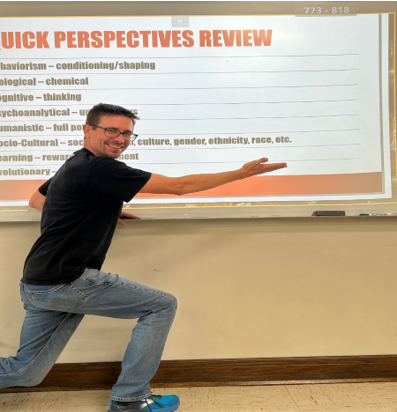Separating the art from the artist isn’t easy
April 3, 2023
Listening to music after coming home from a long day of school always helped me. I would listen to all my favorite songs, including one song called “Television/So far so good” by the artist, Rex Orange County. I adored everything about it. The rhythm, the beats, the vocals, and the emotion that flowed through the music. However, it wasn’t until I saw a post on social media, that my view on how I saw his music changed. Rex Orange County was being charged with 6 counts of sexual assault. As I became angry and shocked, I wondered, “Is it still possible to separate his music from him?”
There was no clear answer.
Now, this event happened a long time ago and the situation around the artist has changed. Most notably, the charges against them were dismissed and the artist still denies the accusations. However, the problem still persists. What should people do when their favorite artists are found in a problematic circumstance? This is an issue that a lot of other fans are forced to face, even now. As they are caught off guard by an artist’s actions, they begin to stop their support for the artist and their music. A more popular case of this would be Ye, formerly known as Kanye West. In an infamous tweet, Ye wrote antisemitic comments along with other incoherent rants that were considered controversial. After this, many fans became conflicted as they wondered what to do with the music they loved.
Now, I’m sure many fans have tried to hold onto music created by problematic composers despite everything and insisted that they were able to draw a line between artists and their music. However, is that really the case? Artists’ feelings are embedded in their art. They take experiences from their own lives and place them into their music. As we listen to those songs, we’re listening to their experience, emotions, and passions. As Kofi Kframa writes in their Commonwealth article, we can’t separate the two things apart, saying how “everything they create is an extension of themselves and a glimpse into their identity.”
There’s also the problem of listening whilst knowing what the artist had done. In many ways, it ruins the way we perceive their music. The once happy and exciting emotions created by the song become overshadowed by the guilt and terrible feelings we have when we listen. Even one Argo student, Jasmine Luna, admits these feelings affect how she listens to the music.
“Especially when you really think about it. Sometimes I’ll be listening to music and then I’ll remember like ‘oh so and so did this and that.’ It kind of feels like just gross,” Luna said in an interview.
Despite what you choose to do when faced with this problem of “separating art from the artist,” one thing I hope we can do is to acknowledge that one’s actions are wrong. After going through the whole ordeal, as angry as I was, it was more important that I recognized the artist’s actions and held them accountable for what they did.
***For legal purposes, the written article is not encouraging any slander towards any of the following parties involved. This article is for informational purposes.
Please also note that parts of the article was written before the charges of Alexander O’Connor were dropped during December 2022 and does not fully go into the detail of the situation.







